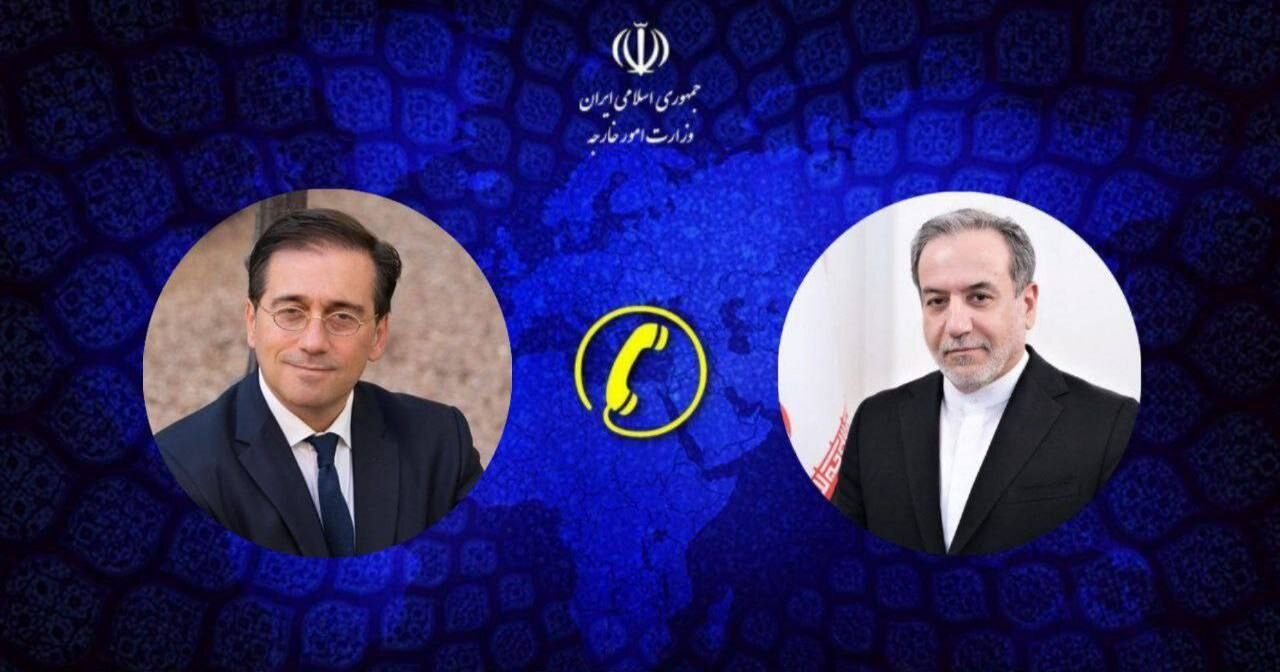Spanish Foreign Minister discusse Israeli aggression against Iran in call with Iranian counterpart

TEHRAN- In a Sunday phone call, Spain’s Foreign Minister José Manuel Albares and Iran’s Foreign Minister Seyyed Abbas Araghchi exchanged views on the recent military aggression by Israel against Iran and its regional implications
During the conversation, Seyyed Abbas Araghchi condemned Israel’s blatant violation of the United Nations Charter and international law amid ongoing Iran-US negotiations. He highlighted that just two days before the sixth round of talks in Muscat, Israel attacked Iran’s nuclear facilities and residential areas, aiming to sabotage diplomatic efforts and drag the region into an unjust war.
Araghchi emphasized Israel’s repeated attacks on civilian areas, resulting in the killing of many innocent women and children. He stated that Iran’s defensive military operations are measured responses aimed at protecting national sovereignty and territorial integrity, which will continue firmly until Israeli aggression ceases.
Reaffirming the peaceful nature of Iran’s nuclear program, Araghchi described the Israeli strike on the Natanz nuclear site as a grave crime against international law and the non-proliferation regime. He stressed that attacking a peaceful nuclear facility is absolutely prohibited, especially given Iran’s program is subject to the strictest inspections under UN Security Council Resolution 2231. Iran expects all countries and the International Atomic Energy Agency to strongly condemn this violation.
Spain’s Foreign Minister Albares expressed regret over the attacks and loss of life, voiced concern about escalating regional tensions, and offered Spain’s readiness to contribute positively to de-escalation efforts.
Araghchi also criticized the destructive stance of three European countries supporting Israel’s overt aggression and thanked Spain for its constructive proposal.
This exchange underscores the heightened diplomatic tensions following Israel’s recent military actions against Iran and the ongoing challenges facing regional stability.
Leave a Comment